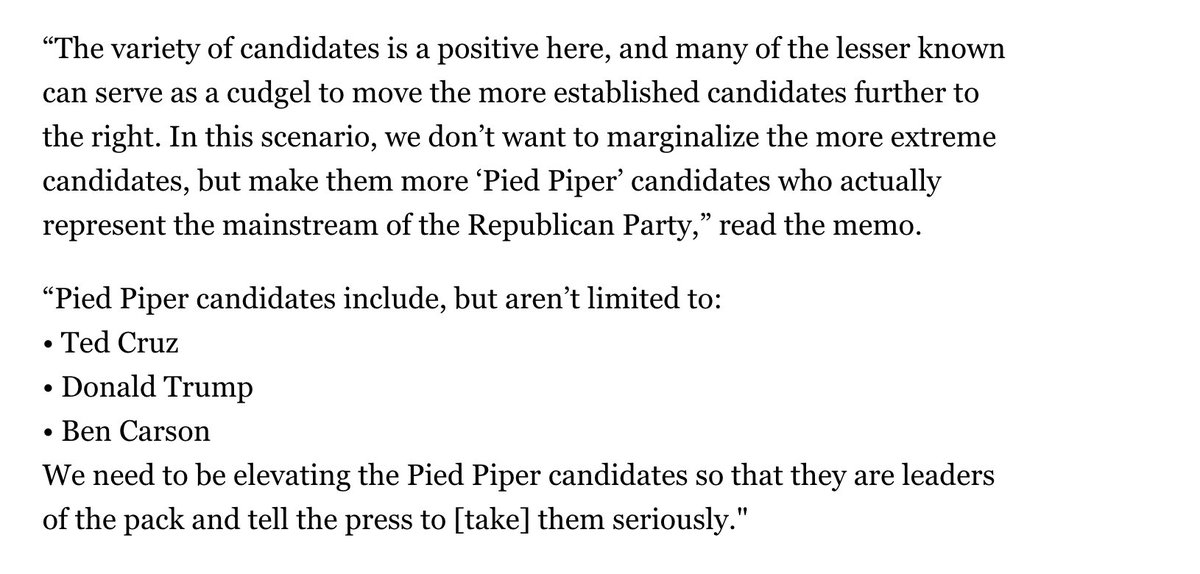
I'm trying to cut back on dunking on Yglesias, but compare this glib utterly uniformed tweet with the excellent discussion of the right's long term court strategy on recent @KnowYrEnemyPod & @fivefourpod podcasts (the first of which is here: stitcher.com/show/know-your… 

I'm blocked so could someone tell Mr. Yglesias that there are people known as "scholars" who write things called "books and articles." If you consult those, you will find overwhelming documentation of a long term right-wing strategy on the courts that led to this moment. 

It's true that the right's long-term strategy met roadblocks and setbacks along the way -- the Bork fiasco, the fact in early stages they didn't vet judges perfectly so got Kennedy & Souter -- but on the whole it's been a very determined 50 year long march which paid off.
To put this another way: why did Kennedy strategically retire & RBG didn't? Could it be that the right created an infrastructure where its members, including justices, see themselves as team players while liberals prioritized glamor of pioneering achievement? 

This is good frame. Even if the proximate cause is individual decisions (and stipulating, arguendo, those decision could be separated from broader political culture), what led to those decisions being pivotal is ultimate cause of political organizing
https://twitter.com/goldberg_dan/status/1540363788397993985
The proper way to understand this tweet is that Yglesias is deeply adverse to political organizing. That's been the case since he was a student at Yale & hated anti-war movement. So success of anti-choice movement via organizing has to be downplayed. Everything is about elites. 

Obviously there's an element of contingency in all human affairs, but the reason you organize politically is to create opportunity to take advantage when contingent events break your way, as they did in RBG's & Kennedy's decision. Right organized to seize that moment.
• • •
Missing some Tweet in this thread? You can try to
force a refresh






